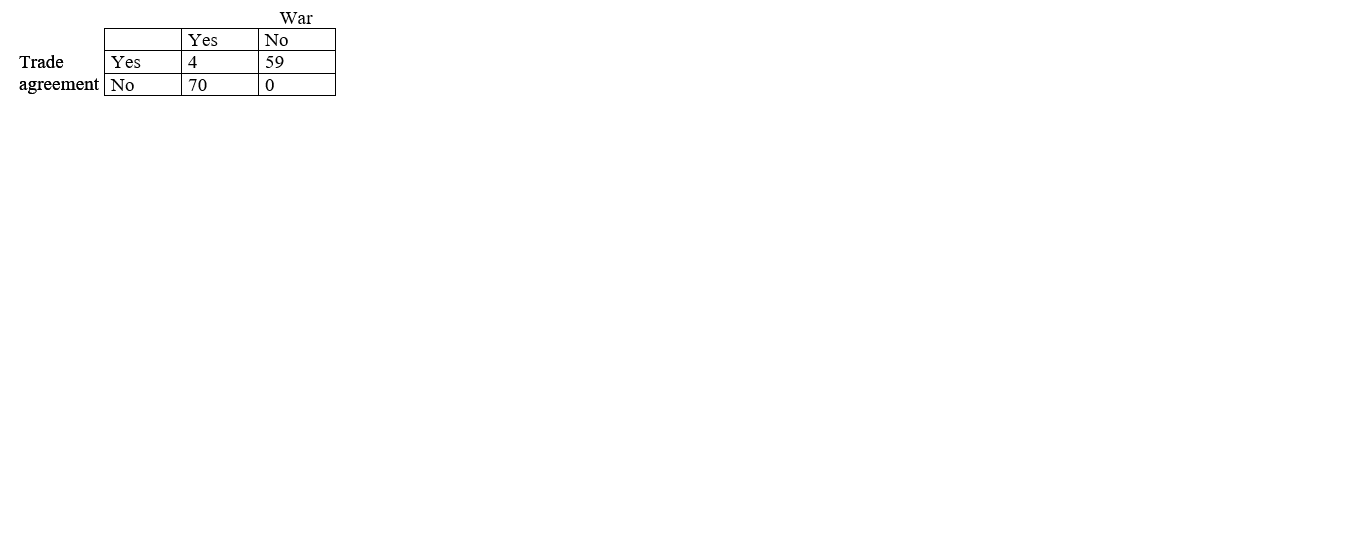The higher the intensity of partisan preference that a person has, the more likely that person is to vote
Indicate whether the statement is true or false
True
You might also like to view...
Which president signed the Voting Rights Act?
a. Dwight Eisenhower b. John Kennedy c. Lyndon Johnson d. Richard Nixon
Suppose we want to test the relationship between trade agreements and wars. The following data were collected. According to these hypothetical data, trade agreements are _______________________ for preventing wars.

a. necessary
b. sufficient
c. necessary and sufficient
d. neither necessary nor sufficient
Which of the following is an example of the phenomenon of "demand characteristics" acting in an experiment?
a. when participants complete the experiment, they are instructed not to tell anyone else about what they have experienced b. participants in one study report only once, for half an hour, to the research lab, but participants in another study have to report three times, for an hour each time, and resent having to spend so much time c. participants in a study are drawn from the large Introductory Psychology classes, and students who have already participated pass rumors to others about what the experiment is trying to "prove" and try to determine what the experiment is about from the equipment in the laboratory d. in one psychology experiment, the researcher does not allow participants to withdraw from the study, even if they do not like the kinds of tasks they are asked to perform
A lobbyist is defined as
A) any association that employs an interest group to influence the government. B) an individual affiliated with one of the two major political parties. C) an individual or organization that attempts to influence legislation and the administrative decisions of government. D) a government worker who is not an elected official. E) a member of the congress who shapes the legislative agenda to benefit powerful interest groups.